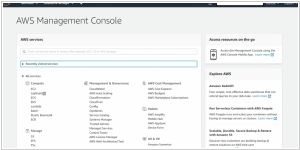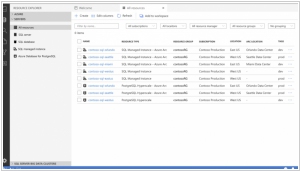AWS Outposts vs Azure Arc
July 23, 2023 | Author: Michael Stromann
AWS Outposts and Azure Arc are two offerings from major cloud providers designed to address hybrid cloud challenges. AWS Outposts, provided by Amazon Web Services (AWS), is a hardware-based solution that brings AWS infrastructure and services to customers' on-premises data centers. It allows organizations to run AWS services locally, providing a consistent hybrid cloud experience and supporting low-latency applications while maintaining data residency requirements. In contrast, Azure Arc, developed by Microsoft, takes a different approach by extending Azure's management and governance capabilities to resources outside of the Azure cloud environment, including on-premises servers and other cloud platforms. Azure Arc provides a unified management experience using Azure's tools and services across diverse environments, enabling organizations to centralize and govern their distributed resources seamlessly.
See also: Top 10 Private Cloud platforms
See also: Top 10 Private Cloud platforms
AWS Outposts vs Azure Arc in our news:
2020. Microsoft brings data services to its Arc multi-cloud management service
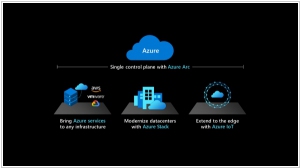
Microsoft has introduced a significant update to its Arc multi-cloud service, empowering Azure customers to operate and oversee workloads across various clouds, including those offered by Microsoft's competitors, as well as their on-premises data centers. Initially unveiled at Microsoft Ignite in 2019, Arc was designed not only to assist users in managing their servers but also to enable them to run data services such as Azure SQL and Azure Database for PostgreSQL in proximity to their data. Today, the company fulfills this commitment by launching a preview version of Azure Arc-enabled data services, which unsurprisingly includes support for Azure SQL and Azure Database for PostgreSQL. Furthermore, Microsoft has made the core feature of Arc, Arc-enabled servers, generally accessible. These tools form the foundation of the service, empowering enterprises that employ the standard Azure Portal to administer and monitor their Windows and Linux servers throughout their multi-cloud and edge environments.
2020. Azure Arc brings its Kubernetes service into public preview
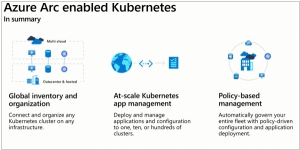
Microsoft has unveiled that Azure Arc, its cloud resource management service designed to operate across various environments, including rival clouds such as AWS and GCP, as well as platforms like Red Hat's Open Shift, is introducing Azure Arc-enabled Kubernetes in its public preview. This update empowers users to configure and oversee Kubernetes clusters across their data centers, edge locations, and public clouds. Additionally, Microsoft announced the inclusion of support for SUSE Linux Enterprise Server and the SUSE CaaS Platform within Azure Arc's capabilities.
2019. AWS Outposts brings Amazon cloud to data center
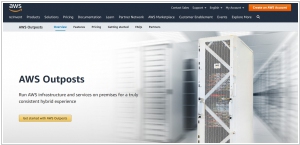
Amazon has officially launched Outposts, a private cloud hardware stack that can be installed in your own data center. Certain workloads, such as factory operations, require close proximity to compute resources due to low-latency requirements. Outposts aims to address this need, distinguishing itself from existing solutions by providing a seamless connection between on-premises hardware and the cloud. The hardware stack is equipped with a comprehensive range of services, including Amazon Elastic Compute Cloud (EC2), Amazon Elastic Block Store (EBS), Amazon Virtual Private Cloud, Amazon ECS, Amazon Elastic Kubernetes Service, and Amazon EMR. With this move, Amazon joins Microsoft and Google, who already offer their own hybrid cloud solutions to customers: Azure Arc and Google Anthos, respectively.
2014. Microsoft Azure appliance makes comeback
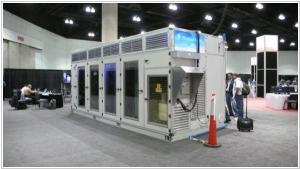
Microsoft is introducing a fresh Azure appliance that enables companies or service providers to implement it within their own data centers. Dubbed the Cloud Platform System, this novel appliance will operate using identical Azure APIs, services, hypervisor, and all other components as the Azure public cloud, while effortlessly establishing connections with the Azure public cloud. Notably, Microsoft's past exploration of Azure appliances adds to the appeal of this appliance. Previously, the company had contemplated selling appliances to select large service provider partners, like HP, and had even launched a program to assist web hosts in launching their own versions of Azure. However, both initiatives seemed to have been abandoned due to various business and technological factors. Nevertheless, the appliance has made a resurgence.
2010. Windows Azure is already sold in boxes
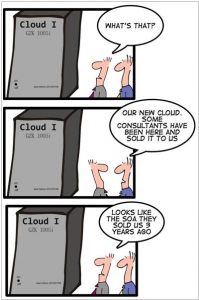
Though there is a big deal of debates around the "private cloud" term (if it's correct to call own data center, optimized with virtualization technology, a "cloud") - no one can deny that these things called "private cloud" are already selling well. The fact is that many companies are still not ready to move their IT infrastructures to public cloud platforms like Amazon EC2 and Windows Azure. But when they are told that "you can take the advantage of Cloud Computing (cost-efficiency, scalability) without any risk for data security, because the cloud will be locked in your office" - they like this. Obviously, private clouds are the necessary intermediate stage of transition companies to "real clouds" and cloud providers have to take a step back so that the process started. So it was with Microsoft. ***

